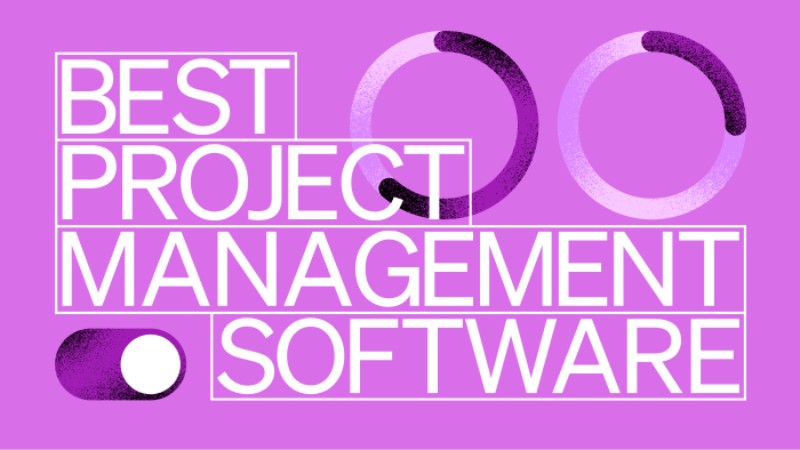
Opting for the right architecture project management software can greatly elevate a firm’s operational capabilities. This article outlines the numerous benefits, essential features, and cost dynamics of such software, making it easier for decision-makers.
Additionally, by examining tailored solutions designed specifically for architectural firms, we aim to assist in making a choice that matches the specific needs and budgetary constraints.
Architecture project management software is a versatile system that merges multiple tools and spreadsheets. Its primary function is to bolster productivity, diminish errors, and conserve time and money, which is crucial for the timely completion of architectural projects.
This tool stands out as essential software for architects, offering a one-stop platform for tasks like assignment, resource distribution, budget handling, time monitoring, and team collaboration. Adopting this software is a forward-thinking approach, one that targets operational excellence in architectural businesses.
To better navigate the intricacies of architectural project management, it’s crucial to grasp the software’s essence. Its main advantage is the optimization of workflows, ensuring timely and excellent project results.
Architecture project management software offers many advantages:
Architecture project management software is a transformative tool, pivotal in elevating a firm’s capabilities and ensuring the successful realization of architectural ventures.
When evaluating architecture project management software, several key features are vital:
Above all, the chosen software should be user-friendly, offering a plethora of features while ensuring data security, given the confidential nature of architectural projects.
Selecting the right architecture project management software involves a meticulous review of the myriad options available. An ideal software harmoniously combines powerful features, user-friendliness, scalability, and affordability. Aspects such as the size of the firm, available budget, unique project requirements, and the preferences of the team play a pivotal role in the decision-making process.
It’s essential to deeply understand the software’s capabilities, especially in areas like time-tracking, resource management, collaborative features, and how seamlessly it integrates with other tools the firm utilizes. The essence of the selection process lies in ensuring that the firm’s demands align perfectly with the software’s functionalities, paving the way for heightened efficiency and productivity.
The price tag of architecture project management software varies widely. Factors influencing the cost include the features it offers, how many users it supports, and its pricing model. While some platforms come with a one-time payment, others follow a monthly or annual subscription model. When evaluating cost, it’s essential to look beyond the initial expense and weigh the long-term benefits, like time efficiencies and productivity gains.
The ultimate aim is to secure a value-driven software solution that fulfills every requisite without straining finances.
Architecture project management software facilitates team collaboration and communication by centralizing information, streamlining workflows, enabling real-time updates, and providing platforms for effective interaction among team members.
Software providers typically offer a range of support and training services. These can include online tutorials, webinars, user manuals, and dedicated customer service teams to facilitate the transition to the new system.
Most architecture project management software solutions offer integration capabilities with other tools for enhanced functionality. Each software’s compatibility varies, thus necessitating careful examination during the selection process to ensure seamless workflow integration.
The security of data in architecture project management software varies by provider but generally incorporates encryption methods and secure servers. It is essential to verify these features before adoption to ensure sensitive project details are safeguarded.
Architecture project management software often offers customization options to align with specific firm requirements, facilitating tailored solutions for unique operational needs and enhancing overall productivity and efficiency within the architectural practice.
Finding the right architecture project management software can profoundly transform the dynamics of an architectural firm. By honing in on productivity and reinforcing informed decision-making, it sets the stage for optimized operations.
When considering your options, it’s essential to evaluate functionalities like project management features, time-tracking mechanisms, resource allocation tools, budget oversight, and comprehensive reporting.
Beyond these core features, the ability of the software to foster team collaboration cannot be underestimated. Integration capabilities that allow the software to seamlessly work with other critical platforms the firm uses are a significant advantage.
An optimal software solution not only ensures that projects are delivered as planned but also fortifies financial oversight. Moreover, it should empower firms to make informed, data-backed choices that respect varying needs and financial scopes.
May is Small Business Month, a time to honor and recognize the achievements of the… Read More
Swiss International University (SIU) is on track to be one of the world's most respected… Read More
In a session that left students buzzing with fresh ideas and practical insights, Invertis University… Read More
At the 21st Shanghai International Automobile Industry Exhibition, which is surging with the wave of… Read More
Liverpool, UK—House of Spells and Comic Con Liverpool are once again collaborating to bring the… Read More
Introduction In India's booming EdTech space, there's one name that's making waves among Telugu students… Read More